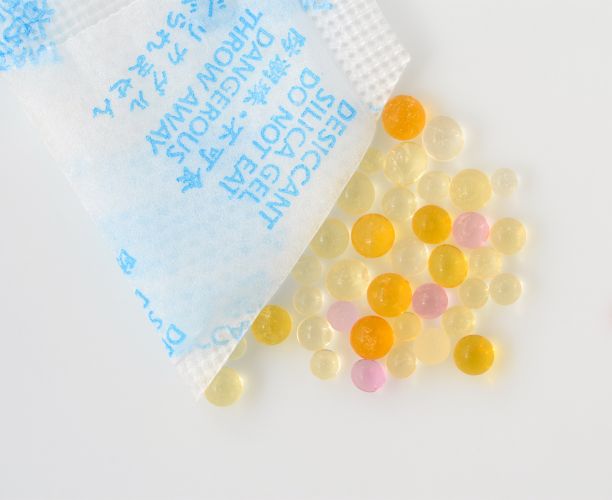Has your dog eaten gel beads? Are you worried the gel beads will make your dog sick? If so, then you’ve come to the right place. We understand it can be scary when your canine companion eats something he shouldn’t.
Connect with a verified veterinarian in minutes. Licensed vets are available 24/7 to answer your questions. No need to worry about your furry family member.
In this article, we’ll take a look at gel beads and whether or not they can make your dog sick. Let’s get started!

What are Gel Beads?
Gel beads are used in everything from medications to the little packets you sometimes find in shoe boxes. The beads are used to absorb moisture and keep food, medications, leather goods, and more from becoming moldy and wet.
Silica gel is a desiccant, which means it absorbs moisture and lowers the humidity levels in containers. The gel keeps the environment from becoming too wet or humid, which could result in rust, mold, and even mildew.
Silica gel beads have no odor or taste, and they’re not toxic. This is the good news. But while gel beads are non-toxic, what happens if a dog eats them? Will the gel beads make a dog sick?
Gel Beads & Dogs
Gel beads are non-toxic, which means they will not poison a dog who has eaten some. However, if the gel beads were still in their packaging, this could pose a huge problem for a dog.
The problem is that the packaging could become lodged in the dog’s digestive tract and cause an intestinal blockage. This is a painful, life-threatening medical condition. The danger is much greater for smaller dogs than larger dogsbecause their digestive tract is much narrower. However, if larger dogs eat more than one packet, they could also risk developing a problem.

Review symptoms, medications & behavior to keep your pets healthy with a Vet Online in just minutes.
Ask a Vet Live NowSymptoms of an Intestinal Blockage in Dogs
You may notice these symptoms if your dog eats gel beads & their packaging:
- Diarrhea
- Vomiting
- Constipation
- Weakness
- Lethargy
- Loss of appetite
- Dehydration
- Abdominal pain and bloating
If your dog shows any of these symptoms, then call the vet immediately. This is a medical emergency. Try to figure out how many gel bead packets your dog has eaten. This information can help the vet.
Treatment for a blocked intestine depends on where the gel bead packet has become lodged. If the packet is in the stomach, the vet may try to remove it with an endoscopic procedure. However, for packets that are lower in the intestine, your fur baby may require emergency abdominal surgery. The surgery is done to remove the packet(s) and to repair any damage that has occurred to the tissue of the intestines at the same time.
Remember that an intestinal blockage that’s left untreated can lead to death. So, always call the vet if your dog has the symptoms above and/or if you saw your dog eat gel packets.
The good news is that dogs who receive prompt medical treatment for a blocked intestine will make a good recovery!
Connect with a verified veterinarian in minutes. Licensed vets are available 24/7 to answer your questions. No need to worry about your furry family member.

Rebecca MacMillan, BVetMed BSAVA PGCertSAM MRCVS
This article has been reviewed and approved by an independent Veterinarian: Rebecca is a companion animal vet who has always had a passion for writing and client communication. Since her graduation from the Royal Veterinary college in 2009 she has gained a wealth of experience in first opinion small animal practice, in both clinical and managerial roles. She currently works in the South West and deals with a variety of routine and emergency appointments, but particularly enjoys medicine cases. Outside of work and writing, she enjoys spending time with her family, including her bouncy flat coated retriever George!
Review symptoms, medications & behavior to keep your pets healthy with a Vet Online in just minutes.
Ask a Vet Live Now





